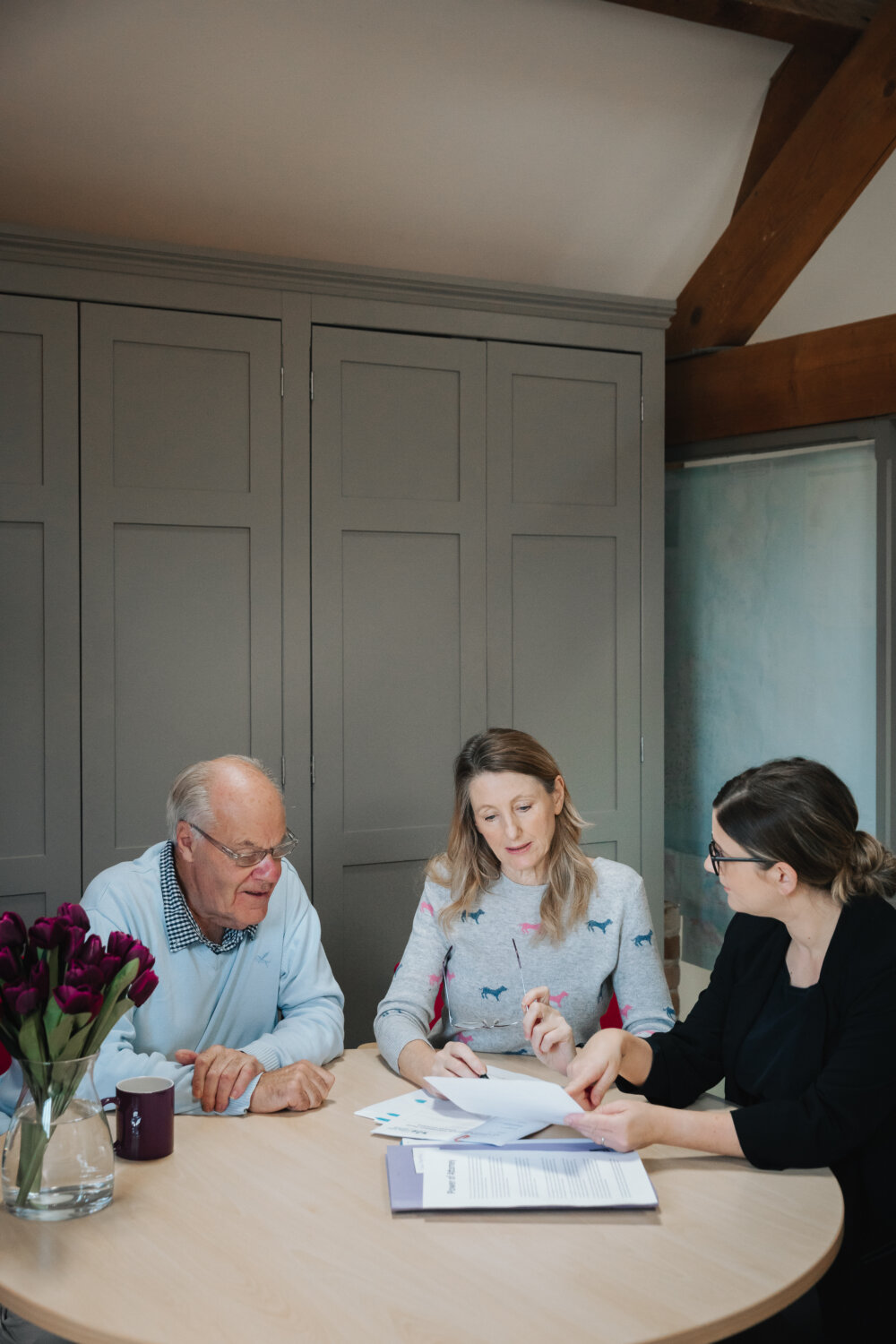All about the care plan

If you have recently started looking into the process of organising care for yourself or a loved one, you may have come across our guides on How To Tell If You Or A Loved One Needs Support, How To Choose and Arrange Home Care Services, and The Care Needs Assessment. But what happens after your care needs have been assessed? Here, we’re looking at the details of the Care Plan you might be assigned after the Care Needs Assessment, including what is included in a Care Plan, what to do if you’re not happy with the care you are receiving, the importance of person-centred care, and more. At Home Instead, our aim is to help people age positively and in place, which means bringing expert care to them at home. This helps them to live independently and enjoy a stimulating life where they’re most comfortable. We’ve helped thousands of families, so whatever situation you’re facing, or whatever your questions about home care, Home Instead can help.
What is a Care Plan?
A Care Plan is a written document created after a Care Needs Assessment is carried out and an individual has been identified as being eligible for care. It details the type of support needed to meet the care needs of the person in question. As well as ensuring the plan is written up formally, the local authority that carried out the Care Needs Assessment will arrange for the recommended support and services to be implemented. As an example, a Care Plan might recommend something like moving an individual into a nursing home in order to meet their daily medical needs, or it may recommend home adaptations such as adding grab rails or a ramp, to make life at home safer. A Care Plan is an important document to break down exactly what recommendations have been made, and why. It allows everyone in the chain – from local authority administrative staff, to carers, to your family and loved ones – to understand your needs and ensure they are being adequately met in the right areas, at the right times. A Care Plan should always take into account your individual wishes and preferences, and take reasonable steps to accommodate these. Each Care Plan will be unique to the individual, but they are all created for the same purpose; to ensure you get the care you need to live as independently as possible, to ensure you receive the same care no matter which care worker is on duty, and to record everything that happens.According to the NHS, a care and support plan should include:
- Your personal preferences and priorities
- What you can do yourself
- What equipment or care you need
- What your friends and family think
- Who to contact if you have questions about your care
- Your care budget and direct payments (the weekly total the council will spend on your care)
- What care you can get from your local council
- How and when care will happen

How do you get a Care Plan?
Before you are assigned a Care Plan, you must undergo a Care Needs Assessment to establish exactly what type of needs you have. You can read all about what happens at a Care Needs Assessment in our guide: The Care Needs AssessmentAs a brief overview, however, a Care Needs Assessment usually goes something like this:
- You or your advocate will make a phone call or online enquiry via the relevant local authority – you can find out more here – and you will be contacted via your preferred contact method to let you know when someone will visit.
- An assessor with appropriate training and experience (such as a social worker, occupational therapist or someone else with the right qualifications) will visit you. During the assessment, they may walk around your home, examining what your specific needs may be and what interventions could help you most.
- You will have a discussion about your daily activities, health conditions or mobility needs, and personal preferences. For example, if you would like to arrange home care rather than moving to a care home, you can let them know. Remember, the end goal of your local council is to keep older adults in their own homes as long as possible if they are safe and well there, so your assessor will do all they can to support this.
- The assessor might chat to your family members or caregivers if they are present at your assessment, to get a more holistic view of your needs.
- The assessor will clarify what support might be available, and what their recommendations are. This might include anything from a carer, to personal alarms, to home adaptations, to activity groups, and more.
- Your assessor will give you a rough time frame for when they expect your Care Plan to be ready, and this will be sent to you.

What is included in a Care Plan?
Each Care Plan is entirely personalised to the individual, as everyone’s needs are completely different. Some of the recommendations that may be in your Care Plan include:
- Any adaptations needed to make your home safe and comfortable, or any equipment that would make life easier
- A carer, either on a semi-regular basis, a full-time carer, or a live-in carer
- Personal alarms – either throughout the house or worn by the individual – to make calling for help easier in an emergency
- Intermediate care services to help temporarily after an illness or injury
- Respite care at a day centre
- Socialisation and community activities
- A place in a care home
All Care Plans are different, but according to the National Institute for Health and Care Excellence, all support plans should include information on:
- How your needs will be met
- When care will take place
- The desired outcomes of care
- Your personal preferences
- What you can manage yourself without care
- What your personal budget is in order to pay for the care needed
- How family, friends and carers will be involved in supporting you
- How your needs will be met as they relate to your gender, sexuality, disability, ethnicity or religion
- What to do in a crisis
- Who to contact if you have questions about your Care Plan
The Care Plan should include a record of what takes place during care, to make it easy for a care worker to pick up from where the previous carer left off. This also allows for care to be easily transferable between hospital, home and care home settings, if needed. Plans should be flexible as your needs change, and should also be reviewed regularly – more on this below.
What happens if you receive a Care Plan you are not happy with?
Receiving your personalised Care Plan is not the end of the process. In the UK, the NHS and local councils prioritise person-centred care, meaning you will be highly involved in the creation of your own Care Plan and the subsequent care you receive. On the written document containing your Care Plan, there will be contact details for the best person to get in touch with if you have questions or concerns about what is included in your Care Plan, or the care being given. Should you experience any further worries about your Care Plan or carers, the Local Government and Social Care Ombudsman (LGSCO) acts as an impartial service to look into complaints about councils and other organisations, including adult social care providers – this service is free. If you require care whilst ironing out any issues with the care being provided by your local authority, you may wish to look into private home care if your budget allows. At Home Instead, our Care Professionals are expertly trained to deliver the services you need from home, no matter how complex your needs are.

How often are care needs evaluated?
Initially, you will likely have the first review after six to eight weeks of starting the Care Plan to see that everything is working as it should be. Your care needs will likely change over time, so your local authority will review your care and support plan at least every 12 months. You can ask for an earlier review if you believe your situation has changed, or a full re-assessment if you think more drastic changes need to be made to your plan.
Why is person-centred care important?
Data from a 2014 English National GP Patient Survey suggested that 84% of patients with a long-term condition reported some care planning discussion in the last 12 months, but only 12% reported being told they had a Care Plan in place. By not involving patients in their own Care Plan, important needs can be missed. For this reason, it is crucial to continue improving these numbers and involve people in the organisation of their own care.
As of a review in 2011, getting patients involved in decision-making around their own health is a central theme of national and local policy within the NHS, as this is thought to improve health outcomes and patient satisfaction. Research suggests that patients feel more involved in their own care when they are treated as equal partners in the decision making, when their thoughts are listened to, and when they are provided with all of the information they need.
Furthermore, research on mental health and wellbeing shows that involving patients in their own care planning can lead to improved service outcomes and mental wellbeing. As a result, steps are now taken to ensure all Care Plans take this into account.
We’re an award-winning home care provider and part of a worldwide organisation devoted to providing the highest-quality relationship-led care for older people in their own homes. Arranging care for yourself or your loved one shouldn’t be stressful, so whatever questions you would like answered, feel free to reach out to the Home Instead team to discuss your needs.


Michelle Tennant, Clinical Governance Lead